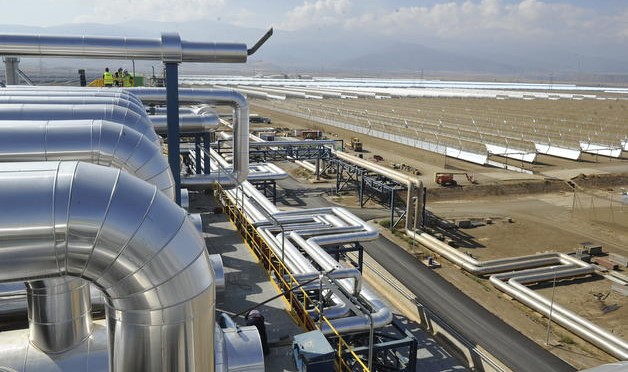With this type of auction, the growth of each technology could be guaranteed to comply with the PNIEC and monitor the evolution of the cost of each one. Another option would be to promote auctions by definition of dispatch profiles or exclusive generation windows.
The Spanish Association for the Promotion of the Solar Thermal Industry (Protermosolar) has presented its allegations to the Draft Royal Decree that regulates the Economic Regime of Renewable Energies for Electric Power Production facilities, among which the request for auctions specific by technology, which would guarantee the evolution of each technology and compliance with the objectives of the PNIEC, in addition to each technology being able to compete with each other and monitor the evolution of cost.
However, from Protermosolar an alternative to specific auctions has also been presented, which consists of defining profiles or windows for exclusive generation, for example, from 5:00 p.m. to 9:00 a.m., to guarantee renewable support for photovoltaic energy when the sun doesn’t shine.
In addition, the Association Protermosolar intends to allow storage of existing concentrated solar power plants and that these new systems can offer an auction price. In this way, the energy from the existing concentrating solar power plant would be under the current specific remuneration regime and the new energy generated from the storage system at the auctioned price.
Protermosolar considers that the Draft Royal Decree on Auctions seeks to simplify the remuneration framework, an aspect that it achieves in comparison with the specific remuneration regime in force. However, despite being an advance over the previous system, there are a couple of factors that introduce a lot of uncertainty. These factors are the market adjustment coefficients, which can modify the auction price significantly and the introduction of the fee exemption price, below which the energy is not considered as auction (it does not receive the award price or compute for the minimum generated energy requirements). Although the objective they pursue is positive for the market – to shift production hours to those where they can contribute most to decarbonisation and, on the other hand, to reduce discharges – the cost of their implementation, with financing for more expensive projects to compensate these uncertainties, could exceed the benefits sought.
Finally, unlike most international auctions, Protermosolar has found no local content requirement. Nor is a minimum duration of the maximum term for the delivery of auction energy guaranteed in advance and there is considerable imprecision in the so-called intermediate control milestones, which will be determined in each call, generating certain uncertainty for the promoters that could be eliminated from now on this Royal Decree Project.
International auction analysis
Protermosolar has analyzed and compared the RD Project with similar regulations in comparable countries, such as Portugal, and even with habitual practices in the world compiled by the International Renewable Energy Agency (IRENA).
In general, for the Association, the Draft Royal Decree provides a good scheme, along the lines of international auctions for renewable energy, and giving certain flexibility to specific auction calls. In addition, it simplifies the previous remuneration regime and transfers some visibility into the future with the publication of auction calendars for five years ahead.
To meet the renewable capacity targets by 2030, PNIEC includes substantial growth in intermittent renewables such as photovoltaic (+30 GW quadrupling current capacity) and wind energy (22 GW nearly doubling). However, from Protermosolar it is considered that the hourly generation models foresee a significant number of hours of discharges and exports that may not be carried out.
This high presence of intermittent or unmanageable renewables will cause the market price to drop in a significant number of hours – below the auction price. Therefore, facilities with storage that only extends the operation for a few hours would not make sense, also generating while their resource is available; since they would overlap with those of the same technology without storage, increasing the two aforementioned dysfunctions (dumping + cannibalization of prices) and with higher costs than those same technologies without storage. Only installations with storage (electrochemical, thermal, mechanical, …) with the function of decoupling capture and dispatch will make sense, displacing production precisely when the resource is not available.
Solar thermal technology works perfectly for this daytime collection function, but it is an evening-night dispatch and, meeting the 5 GW targets of new capacity, will greatly contribute to a decarbonisation of the electrical system in collaboration with intermittent renewable energy. Through technology-specific auction calls, it will be ensured that each of the renewable technologies has its growth path in line with the objectives of the PNIEC.
Protermosolar is the association that represents the Spanish sector of the solar thermal industry. Solar thermal technology, in which Spain is an international leader, has recently burst onto the renewable energy landscape worldwide and currently has great growth potential due to its energy storage capacity and being able to dispatch it conveniently, for its revitalizing effect on the local economy and employment and its trajectory of cost reduction. The installed capacity in Spain is 2,300 MW, representing a third of the world’s installed capacity, with a presence of Spanish companies in practically all projects in operation or construction.



